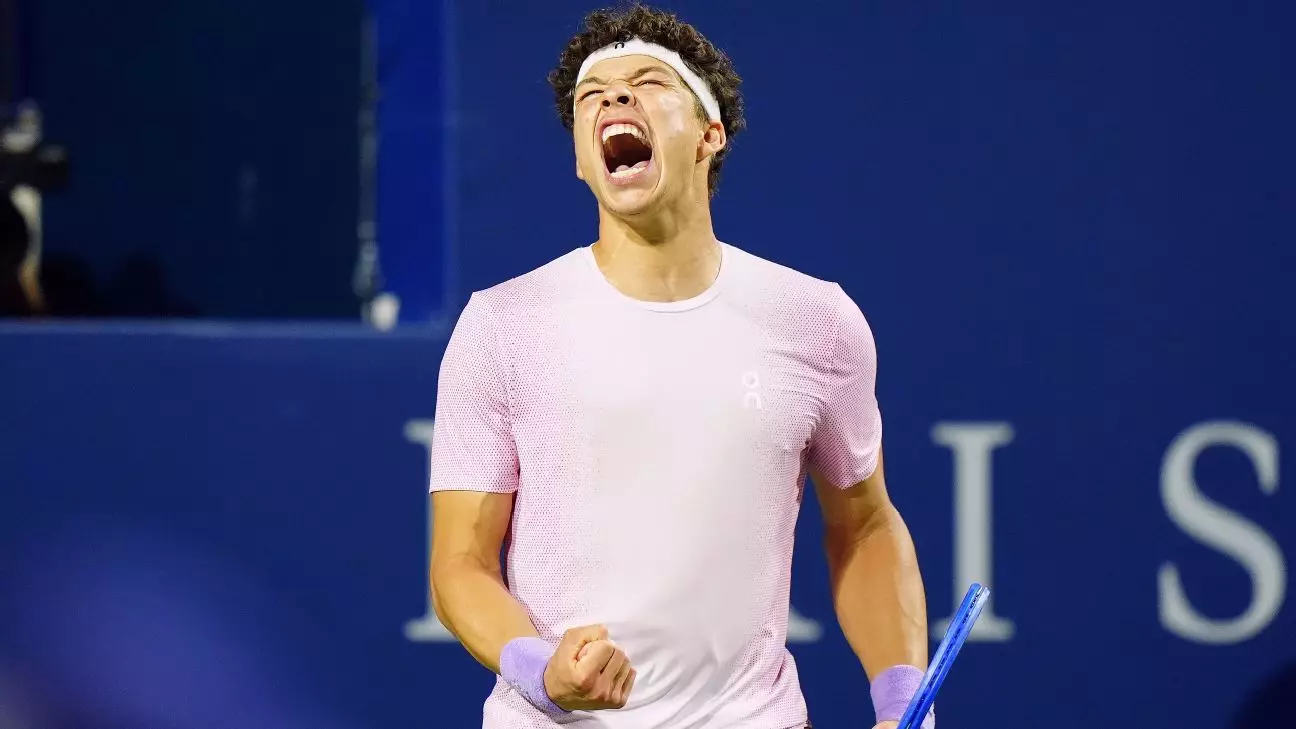In the fast-paced world of professional tennis, victories are often shaped not just by raw talent but by the strength of mental resilience. The recent clash at the National Bank Open vividly demonstrated this truth. Ben Shelton’s comeback from a seemingly precarious position epitomizes the mental fortitude required to excel under pressure. When faced with a 4-2 deficit in the decisive third set against Flavio Cobolli, Shelton refused to succumb, rallying with unwavering determination. His ability to stay focused amid mounting tension and a heated confrontation at the net highlights that psychological endurance often outshines physical prowess. This match reinforces the notion that players who cultivate resilience—embracing adversity rather than fearing it—are the ones who carve pathways to victory.
The Significance of Staying Calm in the Midst of Chaos
Tennis is as much a game of emotions as it is of technique. Shelton’s journey during the match underscores a vital lesson: mastering calmness under duress can turn tides. As he admitted, his struggles with serving and initiating rallies threatened to derail his campaign, yet his perseverance allowed him to find opportunities in desperate moments. It’s not merely about powerful serves and sharp forehands but about composure—acting as a buffer against the chaos of intense competition. Shelton’s ability to remain mentally adaptable and leverage critical rally situations demonstrates that mental fortitude often makes the difference between a fleeting moment of brilliance and sustained success. His grit transforms a difficult match into a testament of true sporting resilience.
The Evolution of Young Talent in a Competitive Era
The ascent of young players like Shelton signifies a shifting paradigm in professional tennis. With only 169 matches under his belt, Shelton’s triumphs showcase the rapid growth and adaptability emerging from the new generation. His victory in Tokyo and Houston, coupled with reaching the 100-match milestone, reflects a player rapidly gaining experience and confidence. His accomplishments challenge older players and remind us that talent alone is no longer enough; relentless mental conditioning and a hunger to improve are critical. Furthermore, matches such as these shed light on the importance of learning from setbacks—Shelton’s ability to bounce back after losing the second set proves that mental strength lies at the heart of differentiation in a fiercely competitive landscape.
The Implications for Future Tennis Battles
Spectacular comebacks like Shelton’s serve as a rallying cry for all aspiring athletes. They emphasize that never giving up, even in the face of mounting adversity, can lead to unexpected breakthroughs. The game’s evolving nature suggests a future where resilience, mental agility, and strategic patience become just as prized as technical mastery. As players like Shelton continue to rise and challenge established elites, it pushes the entire sport toward a greater appreciation of psychological toughness. This new era of tennis champions will likely prioritize mental conditioning, understanding that in a game of inches and milliseconds, the mind can be the most potent weapon of all.
Through moments of intense confrontation and unwavering resolve, contemporary tennis is revealing its true essence: victory belongs to those willing to endure and thrive amidst chaos. Shelton’s remarkable performance exemplifies that grit and perseverance are not just admirable traits but essential components of sporting excellence.

